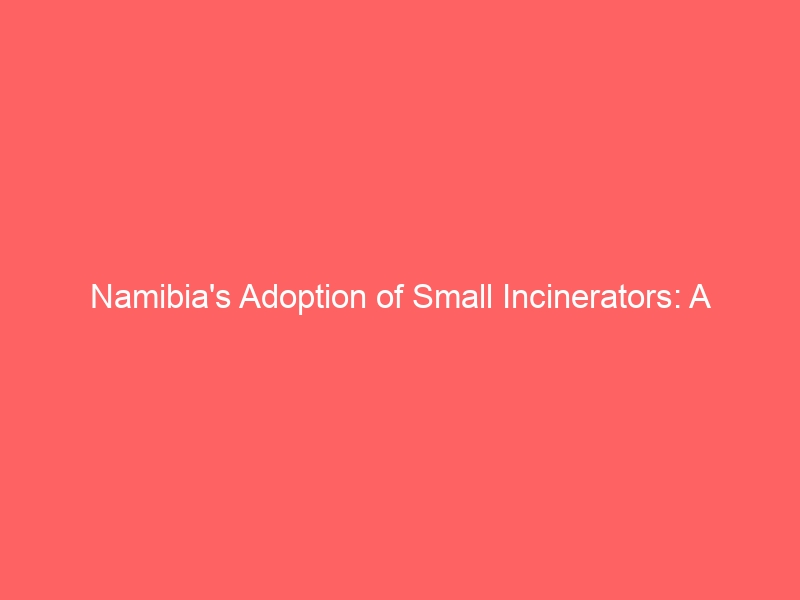Namibia, a country known for its breathtaking landscapes and diverse wildlife, is making strides in sustainable waste management with the adoption of small incinerators. These small-scale incinerators are proving to be a game-changer in the country’s efforts to effectively manage and reduce waste while minimizing the impact on the environment.
Addressing the Waste Management Challenge
Like many countries around the world, Namibia faces significant challenges when it comes to waste management. With a rapidly growing population and increased urbanization, the amount of waste being generated has been on the rise. Traditional approaches to waste management, such as landfilling and open burning, have proven to be unsustainable and detrimental to the environment.
The Role of Small Incinerators
Small incinerators have emerged as a viable solution to the waste management challenge in Namibia. These units are designed to safely and efficiently dispose of various types of waste, including medical waste, hazardous materials, and general refuse. By incinerating waste at high temperatures, small incinerators are able to reduce the volume of waste, minimize the release of harmful emissions, and prevent the spread of infectious diseases.
Benefits of Small Incinerators
The adoption of small incinerators in Namibia has brought about a range of benefits for sustainable waste management. These include:
- Reduction of waste volume: Small incinerators are able to significantly reduce the volume of waste, which helps in conserving space in landfills.
- Minimization of environmental impact: By incinerating waste at high temperatures, small incinerators reduce the release of harmful pollutants into the atmosphere, thus mitigating the environmental impact.
- Prevention of disease spread: The incineration process effectively destroys hazardous materials and infectious waste, preventing the spread of diseases.
- Generation of energy: Some small incinerators have the capability to produce energy from the combustion process, providing an additional sustainable energy source.
Community Engagement and Education
While the adoption of small incinerators is a significant step forward, community engagement and education are crucial components of sustainable waste management. It is essential to raise awareness about the benefits of small incinerators and the importance of proper waste disposal practices among the public. This can be achieved through targeted educational campaigns, workshops, and outreach programs.
The Way Forward
Namibia’s adoption of small incinerators represents a positive development in the country’s efforts to achieve sustainable waste management. As the technology continues to evolve, there is potential for further advancements in small-scale waste management solutions. By embracing innovative approaches and promoting public awareness, Namibia is paving the way for a more sustainable and environmentally-friendly future.








